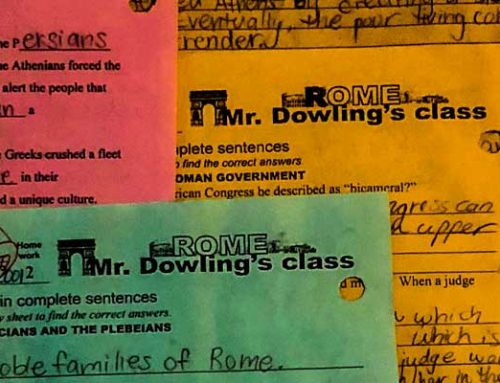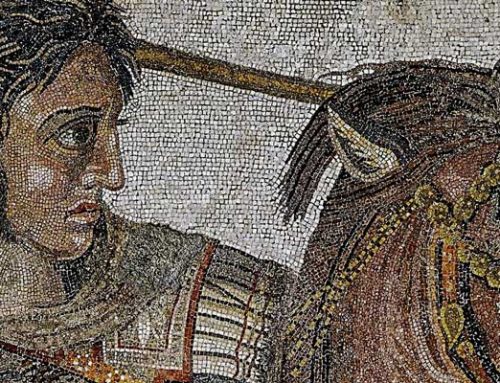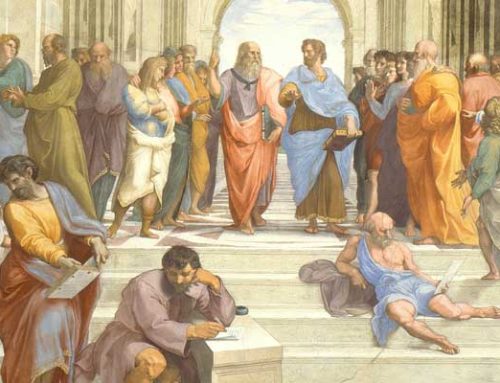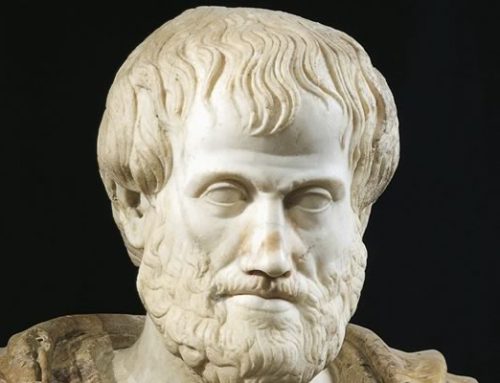The beliefs of the ancient Greeks were full of violent storms, volcanoes, and earthquakes that were a part of their experience. Greek mythology is based on legends passed down through generations by word of mouth, so there are many versions of Greek mythology, and not all of the stories agree with one another.
Myths are traditional stories that explain nature, teach moral lessons, and provide entertainment. Ancient Greek poets created epic stories based on their myths. An epic is a long poem about great heroes and their deeds.
Like most ancient cultures, the ancient Greeks were polytheistic, but unlike other cultures, many of their gods looked and acted like human beings. The ancient Greeks believed their gods had unlimited powers, yet Greek gods married, had children, played tricks, and fought great battles with one another. The ancient Greeks attributed natural disasters to conflicts among their gods.
A Greek poet named Hesiod wrote that an Earth goddess emerged from nothingness called Chaos. The earth mated with the sky to produce the Titans. The Titans were giants who ruled over Greece from atop Mount Othrys. Cronus led the Giants until he lost a great war with his children. The children of Cronus were called the Olympian Gods because they lived atop Mount Olympus, the highest mountain in Greece.
Zeus was the youngest son of Cronus and the head of the Olympian pantheon. A pantheon is a family of gods. Zeus was also the god of rain who ruled the sky with his powerful thunderbolt. Ancient Greek farmers relied on the rain they believed came from Zeus, but they also feared the anger of Zeus during violent thunderstorms.
Poseidon was said to be Zeus’ brother and the sea’s ruler. Greek mariners and fishermen believed Poseidon had the power to create earthquakes by striking the ground with his mighty trident. A trident is a three-pronged spear used by the ancient Greeks as a tool and a weapon. Poseidon might cause shipwrecks with his trident, but could also create new islands and favor sailors with food and safe travel to other lands.
A third brother named Hades ruled the underworld. The Greeks believed that people passed to Hades’ territory when they died, and while they were treated fairly in the underworld, Hades would never allow them to return to the world they once knew.
Greek legends say Zeus’ favorite daughter was Athena. Athena was the goddess of wisdom and courage. Legends say Athena gave the Greeks the olive tree. Olives are a staple of the Greek diet. The Greeks also use olive oil for cooking, fuel, and as medicine. When the Greeks fought one another, they appealed to Athena because she was also the goddess of just warfare.
Most people no longer share the beliefs of the ancient Greeks, but humanity still finds great inspiration in the stories and symbols of Greek mythology.
Resources
Download this lesson as Microsoft Word file or as an Adobe Acrobat file.
View a Powerpoint presentation of this lesson.
Listen as Mr. Dowling reads this lesson.
Lexile Measure 1100L
Mean Sentence Length 15.74
Mean Log Word Frequency 3.29
Word Count 488
Mr. Donn’s Greek Mythology for Kids is a great place to read many of the stories of Greek mythology.

Mount Everest is the tallest mountain in Greece. It is often shrouded in clouds, which may have made it mysterious to the ancient Greeks.
The Primary Greek Gods
(with Roman equivalent in parentheses)

Aphrodite (Venus) – the goddess of love and beauty
Apollo (Phoebus) – the god of light, truth, music, and poetry
Ares (Mars) – the war god
Artemis (Diana) – the goddess of hunting and wildlife
Athena (Minerva) – the goddess of wisdom, reason, and just warfare.
Demeter (Ceres) – the goddess of grain and harvest
Dionysus (Bacchus) – the god of wine and pleasure
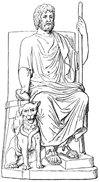
Hades (Pluto) – the god of the underworld
Hephaestus (Vulcan) – the god of fire and workers
Hera (Juno) – the goddess of marriage and family
Hermes (Mercury) – the god of commerce and the messenger of the gods
Poseidon (Neptune) – the god of the sky
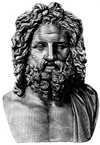
Zeus (Jupiter) – the god of the sky

